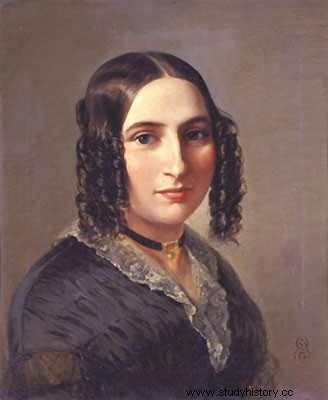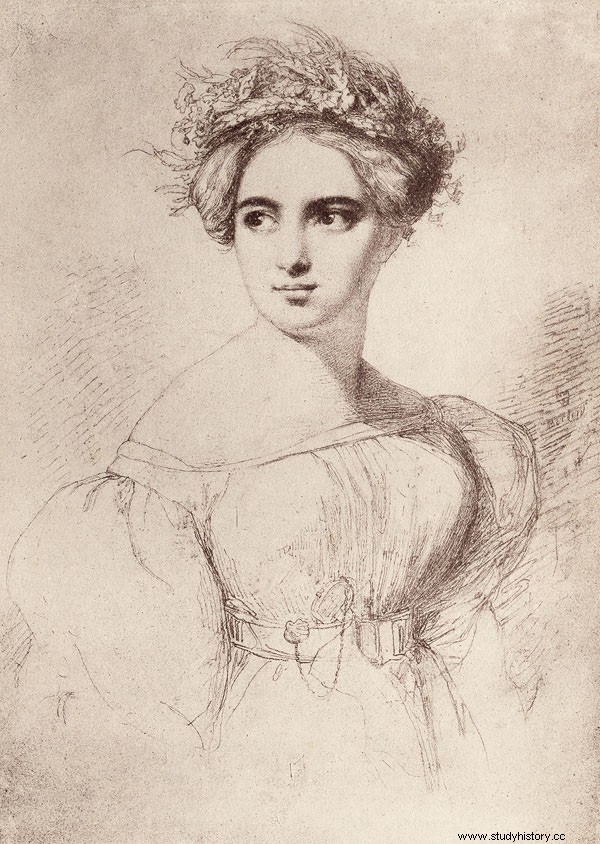A talented German composer and pianist, Fanny Mendelssohn (1805 – 1847) saw her career thwarted by the opposition of her father, who refused to allow her to devote herself to music.
A gift for music

Daughter of Lea and Abraham Mendelssohn Bartholdy, Fanny was born on November 14, 1805 in Hamburg (Germany), into a prosperous family of Berlin intellectuals. Like her sister Rebecca and her brothers Felix and Paul, she was baptized in 1816 and then brought up as a Protestant despite the family's Jewish origins; the name of Bartholdy is thus adopted by Lea and Abraham to stand out from the family tradition. Later, Fanny will claim to hate this surname.
Like her brothers and sisters, the young girl benefited from an excellent education and showed a great talent for music very early on. With the best teachers, Fanny learned the piano and composition, proved able to play complicated pieces and wrote her first pieces from the age of fourteen. His junior by three years, Felix also proved to be very gifted for music and composed an opera at the age of twelve, for his father's birthday.
A broken career
The two child prodigies will not experience a similar fate. Felix's gift for music is encouraged and supported by travels, teachings, concerts. While Abraham means to fourteen-year-old Fanny:"Music may be for him (Felix) a profession but for you it can and should only be a pleasure". Limited by her status as a woman, Fanny is required to devote herself to learning about her future life as a wife and mother rather than her passion for music.
However, she did not stop composing, but her opportunities to make her music known were limited to intimate concerts, reserved for circles of acquaintances, organized at home by the Mendelssohn family. Fanny performs there in front of an audience, even a small one, and interprets Bach, Mozart, Beethoven, works by her brother and even sometimes her own compositions. She remains close to Félix, who sometimes asks her for musical advice and who respects her talent, but who nevertheless helps to keep her in the shadows.
Wilhelm Hensel

In 1829, Fanny married Wilhelm Hensel, a German painter and engraver; they will have a son, Sebastian Ludwig Felix. From now on, the concerts will take place at her home. Unlike her father and her brother, Fanny's husband encouraged her not only to play, but also to publish her compositions. A will that Felix opposes; in 1827 and 1830, five lieder and a duet for voice and piano, composed by Fanny, will be published under the name of her brother. None of his works will appear in his own name.
Fanny travels with her husband, and notably stays six months in Rome where she meets the composers Hector Berlioz and Charles Gounod; she makes a strong impression on them, both as a musician and as a composer. When Fanny died, Gounod said of her that she was "an unforgettable musician, an excellent pianist and a woman of superior intelligence".
An important work
In 1846, aged 40, Fanny Mendelssohn rose up against the prohibition imposed on her to publish her works and published several lieder, works for piano and vocal works for choir. The following year, in May 1847, Fanny Mendelssohn died of a stroke.
She leaves behind an important work of more than 400 pieces, lieder, pieces for piano or organ, or even chamber music, of which she was only able to publish a very small part. After his death, Wilhem strives to right the injustice and to publish his wife's compositions... some of which will not be published until 1987.
